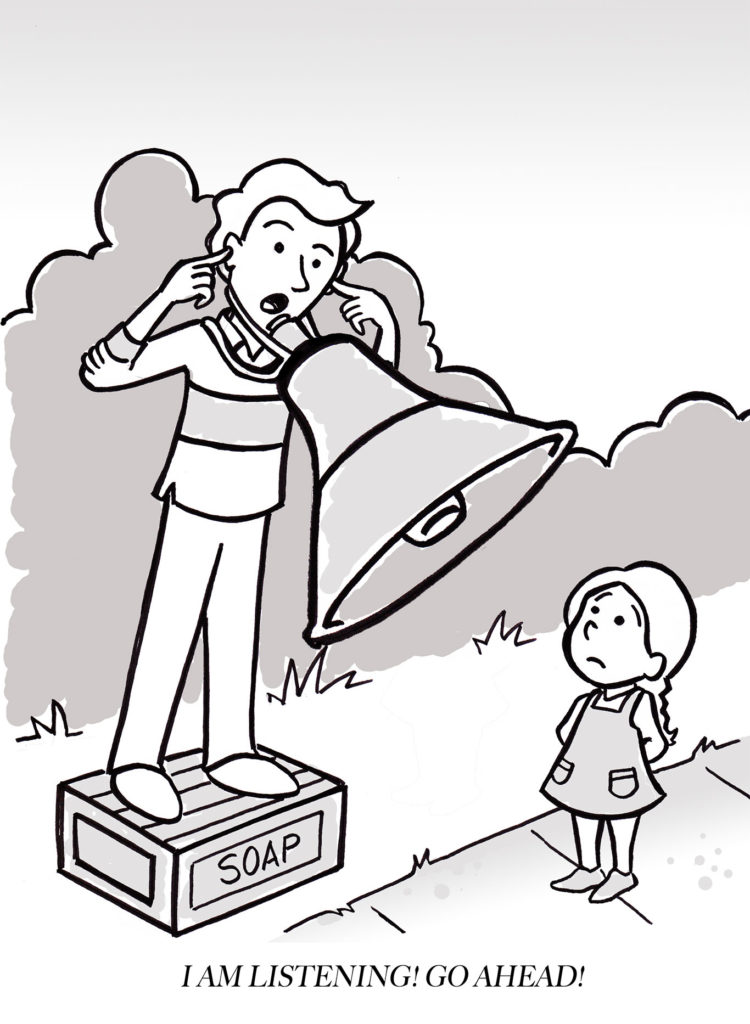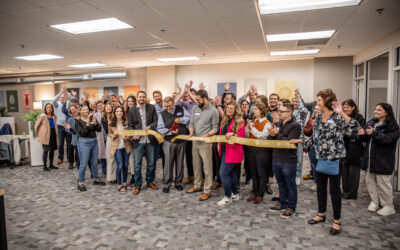As a child who dealt with ADD, I remember hearing innumerous times, “You have two eyes, two ears, and one mouth. You should listen and observe twice as much as you speak!” My immediate and adolescent response, “I have two hands and two feet. I should be on the playground twice as much?” As a child I did not grasp how important this simple concept was to success in business and moreover, in life.
As I started taking up more interest in film and theatre, I began to realize the importance of those words. It’s not enough to just deliver your line. A singular character is not defined by their dialogue and actions alone, but also (and sometimes more so) by the dialogue and actions of the surrounding characters. You must be intent on listening to the lines before and after yours. Knowing your lines alone is knowing half or less of the story.

So what is being said of your character, your company, your ethics? Do you speak too often about what you have, or are going to accomplish? How many of your clients or even colleagues feel that though you might hear them, you’re not actively listening?
That old saying that I had heard so incessantly throughout my youth about my two ears and one mouth continues to ring loudly. This new understanding created a mindset that would help me tremendously as I ventured further into the world of film and eventually client service. By engaging in active listening, I began to develop much deeper relationships and appreciation for those around me.
Most times you see marketers on a soapbox telling clients their story and what they can do for them. What if you step into the audience to listen to what your clients would like? If you do that, you will have an earned platform when the time comes to speak. Business is a dialogue, if you monologue, you lose.
Here are three things that I found to be helpful for engaging in active listening.
1. If you want to be interesting, be interested.
Focus on the person speaking to you. Put your attention on the speaker and the story s/he is sharing and allow yourself to get lost in their narrative. Unless I give my undivided attention, and show that I have a genuine interest, I will have a hard time tracking the story and the details become near impossible to remember. How well can you remember the plot of a movie if you were texting or mentally preparing your shopping list?
In order for me to give undivided attention to anyone when I am in a more public space, I often find that I need to ask if we might move the conversation to a less crowded or noisy space. Don’t be afraid to ask. This shows a genuine interest in what they have to say.
2. Stop thinking about your next line or question.
Take note and circle back. (This may have been the hardest for me to learn… I am still learning) If you are thinking about what you want to say after your conversing partner has finished their bit, or perhaps are thinking about a similar story you might have which you are now eager to share, you are once again going to lose out on pertinent details and perhaps miss the entire story. In a professional context, this is a good reason to always have a notepad. Some of the best listeners I’ve ever met made a practice of simply jotting down their questions along with notes so that they could stay focused and return to their question later.
3. Own your distractions.
If you can’t be attentive in a conversation, schedule a time when you can. Be honest about your time with your clients, friends and family, and don’t be afraid to ask them to repeat something if you did not catch it. I have had to step away from numerous conversations because I simply could not give them the attention they deserved. Now when I say step away, I am not saying that I just walked off half way through. I had to learn to be honest with myself and the person I was conversing with about my current mental capacity for attention to the conversation and retention there of.
Remember, I deal with ADD, and from that perspective I will tell you that these three things are hard-learned skills. They took a great deal of practice, and continue to do so. It is not an overnight solution, and there are many other ways to reign in the intermittent or disinterested hearing and turn it in to active listening. I challenge you to find what works best for you and share.
I know that I like to be listened to when I feel I have something to say. My goal is to afford that to those around me. There is no sense in expecting from others, that which you are unwilling to give.


